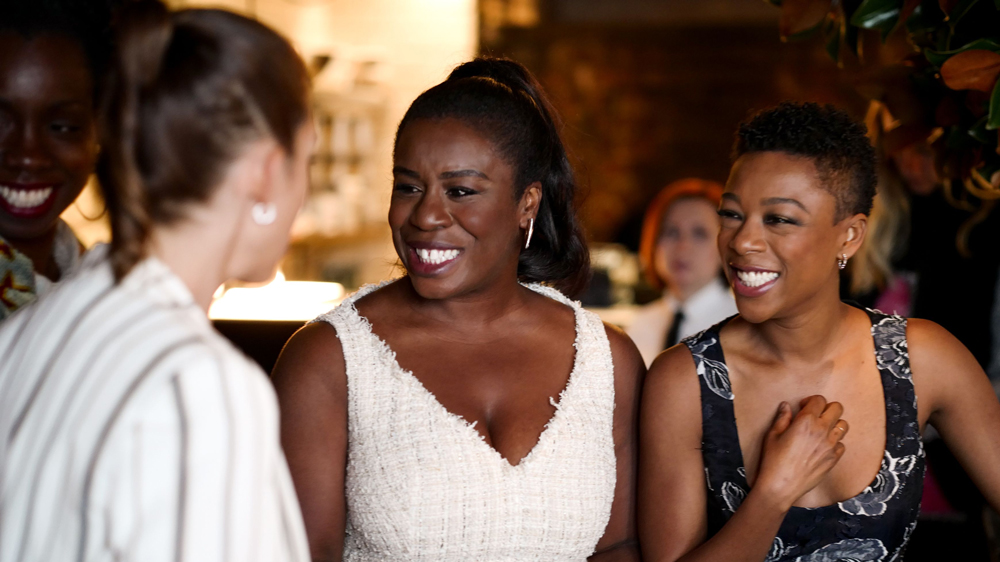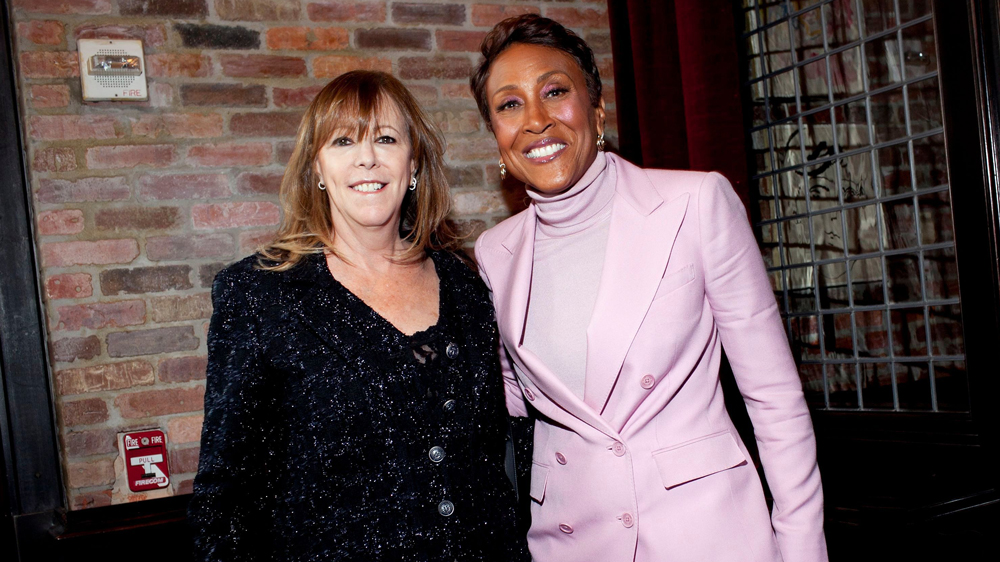Tribeca’s 2018 Through Her Lens Program Kicks Off on Political Note
By Caroline Framke
LOS ANGELES (Variety.com) – There was perhaps no more fitting kickoff to 2018’s Through Her Lens: The Tribeca Chanel Women’s Filmmaker Program than executive chair Jane Rosenthal‘s blunt greeting: “Hello to all you impolite, arrogant women!”
Despite the elegant trappings of New York City’s Locanda Verde restaurant and a co-sponsorship with Chanel, the assembled group of women filmmakers, writers, producers, and actors at the program’s opening luncheon was a frank and lively one. A year after the Harvey Weinstein allegations first dropped and shook Hollywood to its core, such female-driven gatherings have taken on new urgency, with a sharper focus on practical solutions rather than the usual sweeping declarations of the importance of diversity.
Tribeca’s Through Her Lens program, now in its fourth year, collaborates with Pulse Films to select five teams of female filmmakers to participate in a three-day workshop that includes classes, review sessions, potential prize money to further their projects, and mentorships with industry veterans such as Courteney Cox, Veena Sud, Stella Meghie, and Jenny Lumet. Attendees at the luncheon included directors Mira Nair and Stella Meghie, producers Effie Brown and Christine
Vachon, and actors Uzo Aduba, Melissa Leo, Samira Wiley, Zosia Mamet, and Piper Perabo (who made the biggest immediate statement of the day with a simple t-shirt bearing a pointed message: “Believe Women”).
“There is a level of inclusivity that we never would have thought about in the ’70s,” said Paula Weinstein, executive VP of Tribeca Enterprises, as she looked around the room through tears. “There is a sense that we have to unite.”
But in that vein, as Rosenthal put it, it’s vital that the industry doesn’t just talk the talk, but walk the walk when it comes to hiring women and people of color. While working with Ava DuVernay on the upcoming HBO miniseries “Central Park 5,” she said, they “consciously strove to have a diverse crew, but you know what? This shouldn’t be anything that I’m boasting about. It should be the ordinary course of how we do business, because hiring women is better business.”
Therefore, while “we have accomplishments to applaud, commitments to reaffirm, a strong message of hope,” Rosenthal continued, “it’s laced with disappointment.” The past year has been marked by upheaval and unprecedented honesty about endemic sexism in the entertainment industry, but the hope from last year’s luncheon about the #MeToo movement inspiring widespread change has since proved far more complicated. “The world was listening,” said Rosenthal, “or so we thought.”
At this point, as was perhaps inevitable, the remarks turned to politics, particularly the shadow of the firestorm of Brett Kavanaugh‘s confirmation hearings and the need to vote in November’s midterm elections (the latter of which got the biggest cheer of the day by far).
“The recent spectacle of the Kavanaugh hearings and the attendant response from men in power has been devastating,” said Rosenthal. “It’s hard to fight for equality and rights in the arts when we haven’t achieved the same in the eyes of the government. We will. We must persist.”


